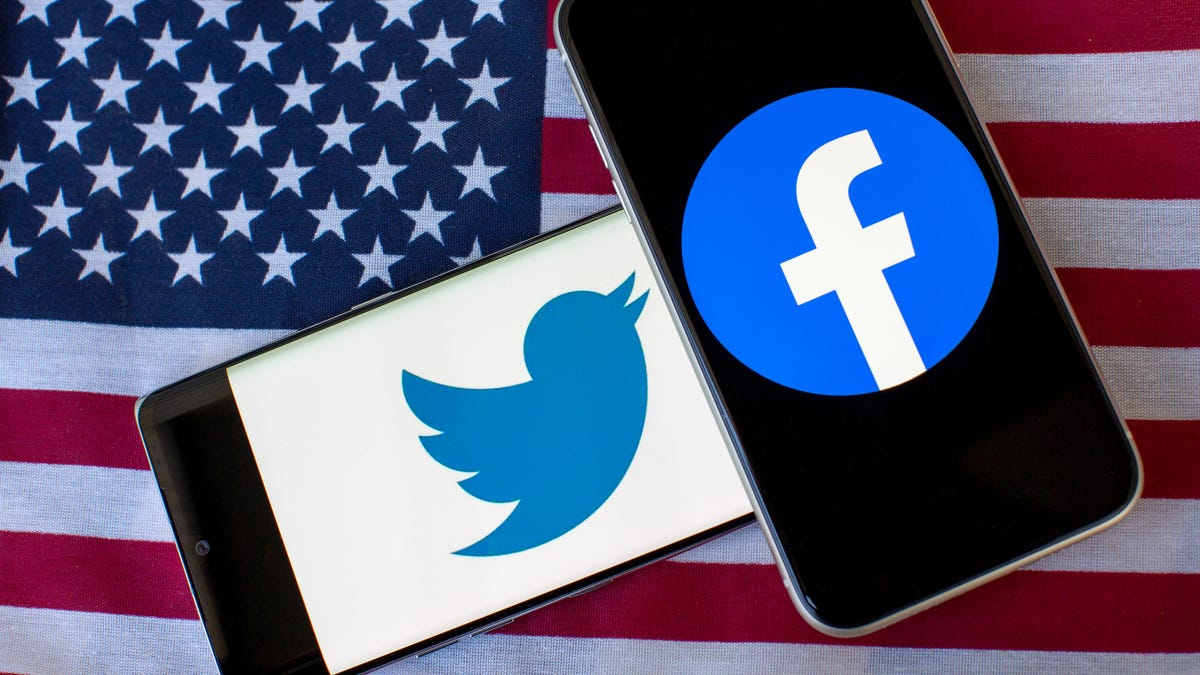Facebook and Twitter's handling of NY Post article fuels concern about their power
Republicans say social networks suppress conservative speech, but the companies have long denied such allegations.

Facebook and Twitter limited the spread of a New York Post story last week, sparking criticism from Republicans.
A pair of US lawmakers said Monday that Facebook and other social media companies wield too much power but sharply disagreed about whether social networks suppress conservative speech, a long-standing allegation the companies have repeatedly denied.
Republican criticism of social networks flared again last week after Facebook and Twitter limited the the spread of a New York Post article about the son of Democratic presidential nominee Joe Biden. The story alleged that emails from Hunter Biden showed he introduced his father to a Ukrainian executive. The Biden campaign has challenged the accuracy and concerns have surfaced that the information was part of a disinformation effort to sway the US presidential election.
"You can see [their] power in real time with this attempt to censor, to throttle down the distribution of this New York Post story," said Sen. Josh Hawley, a Missouri Republican, at a Wall Street Journal Tech Live Conference on Monday. "When you have a monopoly in Facebook that is attempting to stop the distribution of the news, we have a problem and it's not just with the New York Post."
Rep. David Cicilline, a Rhode Island Democrat, pushed back against accusations that social networks are biased against conservatives. Fox News, President Donald Trump and other conservative figures get a large amount of traffic on Facebook, he noted.
"If there's a conservative bias on these platforms, they're doing a pretty lousy job lately," he said.
The exchange comes against a backdrop of lawmaker activity around protections social networks currently enjoy. On Oct. 28, Facebook CEO Mark Zuckerberg , Google CEO Sundar Pichai and Twitter CEO Jack Dorsey are set to testify in a hearing about Section 230, a law that eliminates a social network's liability for posts made by its users, as well as its moderation policies. Separately, the Senate Judiciary Committee is scheduled to vote Thursday on authorizing a subpoena to Zuckerberg and Dorsey to testify about alleged anti-conservative bias.
Also on Monday, Sen. Ted Cruz, a Texas Republican, said during a press call he expected Zuckerberg and Dorsey to testify before the committee before the Nov. 3 election either voluntarily or by subpoena. The companies are in discussion with the committee, he said. Facebook and Twitter didn't immediately respond to a request for comment.
Hawley and other Republicans have pushed for the removal of protections tech companies receive under Section 230 that shield these firms from lawsuits for content that users post. "What we're seeing is the use of this monopoly power to put a thumb on the scale," he said during the WSJ panel.
Alex Stamos, a former Facebook executive who now directs the Stanford Internet Observatory, said during the WSJ conference that the NY Post story got millions of interactions on Facebook. The company limited the reach of the story because Facebook was trying to figure out whether it was part of the same disinformation attack that happened in 2016 by Russian military intelligence, he said. Stamos said he thought Twitter "overstepped" by blocking the link to the article. He also disagreed that Facebook and Google were monopolies, but said there were "dominant players." Facebook shouldn't be allowed to buy competing networks and Google should have controls over their use of YouTube, a popular video service it owns, Stamos said.
Hawley said he wants to restore open competition and give users more control over their data. Cicilline said lawmakers have to modernize statutes, provide resources to antitrust agencies and make sure enforcement is taking place.
"These are easy problems to identify," he said. "They're complicated problems to solve."

